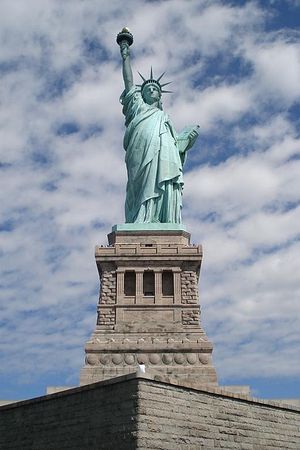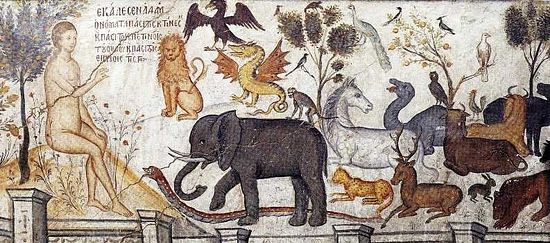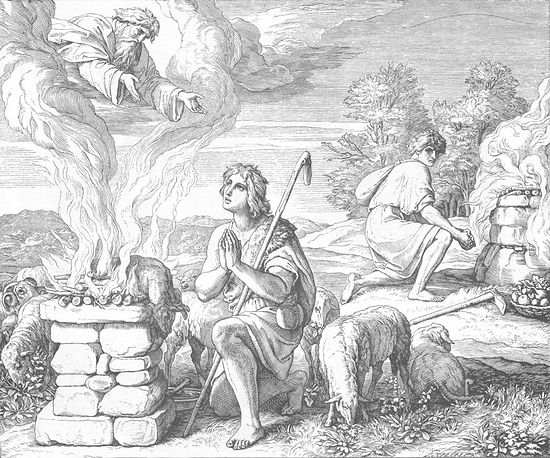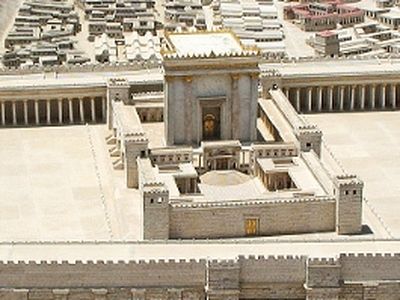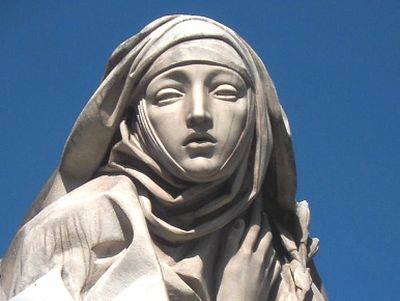When all the pain and misery of this world is considered, there is often one attitude at the heart of it all: a lack of contentment.
Generations of Americans were raised on the “American Dream.” Many of us were taught from childhood that we could be and do anything we wanted. We were told to expect and even demand as much, stopping at nothing to “achieve our dreams.” We seek endlessly for the perfect spouse, the perfect career, the perfect car, and the perfect house. And when we are soon bored with all of that, we seek after something new.
Instead of pursuing after solace or stillness (ἡσυχία or “hesychia”), we are led to desire more. And this unbridled yearning—perhaps best personified by the character Daniel Plainview (Daniel Day-Lewis) in the 2007 film There Will Be Blood—has led to unthinkable evils in every generation. As Dr. David Abrahamsen once wrote:
The American dream is, in part, responsible for a
great deal of crime and violence because people think that
the country owes them not only a living but a good
living.
—San Francisco Examiner and Chronicle (Nov. 18,
1975)
In 1774, the Royal Governor of Virginia wrote to a colleague, “if [Americans] attained Paradise, they would move on if they heard of a better place farther west.” He also suggested that Americans “forever imagine the lands further off are still better than those upon which they are already settled.”1 This unsettled desire is our cultural and even spiritual heritage, and we would do well to consider its ramifications—as it has influenced everything from primary education to our pursuit of happiness.
When we shift from a gratitude for life itself to a dissatisfaction for anything but abetter life, we are far from the Kingdom. We are far from the stillness and “quietude” so lauded by both the scriptures and the fathers of the Church. And this attitude is not limited to the American Dream or any one culture in history. This sin goes back to the dawn of humanity and the advent of death itself.
What we see in the Garden is paradise. A place of intimate and immediate communion with God, surrounded by a peace and beauty the likes of which we can hardly imagine. And in this world of perfection, we could not find contentment. We considered the lies of the Evil One, betraying our Father for the dragon. All it takes is an idle thought—Τί ὅτι εἶπεν ὁ θεός (“Why is it that God said . . . ?” Gen. 3:1 LXX)—and the promise of something better than the present. Even in the midst of Life himself, we sought “the better life,” a life that is deceptively promised, but never found.
Through a lack of stillness, death entered the world. And because of this ancient and ancestral sin, humanity is now jarred as a spinning top knocked from its harmonious path. Our intimacy with God, his good creation, and each other is now marred, something other than it should be. From a lack of contentment comes death.
Shortly following the advent of death is the first murder—a deed that flows from the same source as death: a lack of contentment, jealousy, and unholy desire. When Cain saw that his worship was not accepted by God in the same way as Abel’s, he was struck with envy. This envy was a lack of contentment and stillness in his heart. St. Gregory the Great explains from this story that even worship offered to God can be sin if it is done with the wrong intentions:
For it is rightly offered, when the thing that is done is done with a right intention. But it is not ‘rightly divided,’ unless that which is done with a pious mind be made out with exact discrimination. For to ‘divide the offering aright’ is to weigh all our good aims, carefully discriminating them . . . —Morals on the Book of Job 2.13
Cain is “deeply grieved,” and so God commands him: “Be still!” But Cain finds no stillness, and proceeds to murder his brother. In telling Cain to be “still,” God literally tells him to ἡσυχάζω (“hesychazo,” Gen. 4:7 LXX). The very first murder flows from a lack of hesychia or an inability to practice “hesychasm” (quiet, stillness, rest).
This meditative and spiritual discipline of the Orthodox Church has a long heritage. It is known as both ἀναχώρησις or “withdrawal” and νῆψις or “watchfulness” (1 Pet. 5:8). Ultimately, the purpose within each emphasis is the same: to find a true inner peace by God’s grace, so that we are able to resist temptation and be freed from deception. St. Hesychios of Jerusalem describes watchfulness as:
A spiritual method which, if sedulously practiced over a long period, completely frees us with God’s help from impassioned thoughts, impassioned words and evil actions . . . It is, in the true sense, purity of heart, a state blessed by Christ when He says: ‘Blessed are the pure in heart, for they shall see God’ (Matt. 5:8). —On Watchfulness and Holiness 1
St. Hesychios goes on to note that Moses taught the ancient Hebrews to seek after this quietude of heart: “Be mindful of yourself, lest a hidden word is in your heart, a transgression of the law” (Deut. 15:9 LXX).
This pursuit of stillness runs contrary to every twisted impulse and deception of our day. Demands for equality, empowerment, and rights are demands that betray our higher calling to stillness. Or, as the late Fr. Alexander Schmemann once put it, “Equality is from the devil, because it comes entirely from envy.” The fact of the matter is, we are not all the same. Even if we are granted “rights” by our governing powers, this does not mean that we should exercise them or follow them to their logical conclusion (the “is/ought” fallacy). And so, the apostle Paul warns:
“All things are lawful for me,” but not all things are profitable. “All things are lawful for me,” but not all things build up. We should not seek our own good, but each one the other’s good. —1 Cor. 10:23–24
We are not all meant to be the same. Not all of us are meant for “great things”—as perceived by the world’s eyes—or the sort of success promised by the American Dream. We are unique individuals, and God has placed us when and where we are for a purpose beyond our comprehension. But in this uncertainty, we can still find a quietude of heart—we can “be still” and know God (Ps. 45:10 LXX)—if we direct our thoughts, prayers, and intentions in a proper and spiritual manner. We must learn to accept our lot in life, learn to accept with patience all things presented to us, and learn to find contentment in circumstances beyond our control. We need not always look for the next, best thing. The grass is almost never greener.
In my own life, my greatest regrets, failures, and sins have all resulted from envy. These actions have all arisen from an unholy desire, a lack of contentment and stillness in my heart. But we should seek that higher calling, that promised Sabbath rest (Heb. 4:11).
Even as there is chaos and insanity all around us, we can find an inner peace beyond human understanding (Phil. 4:7). And in this peace, we meet God.
